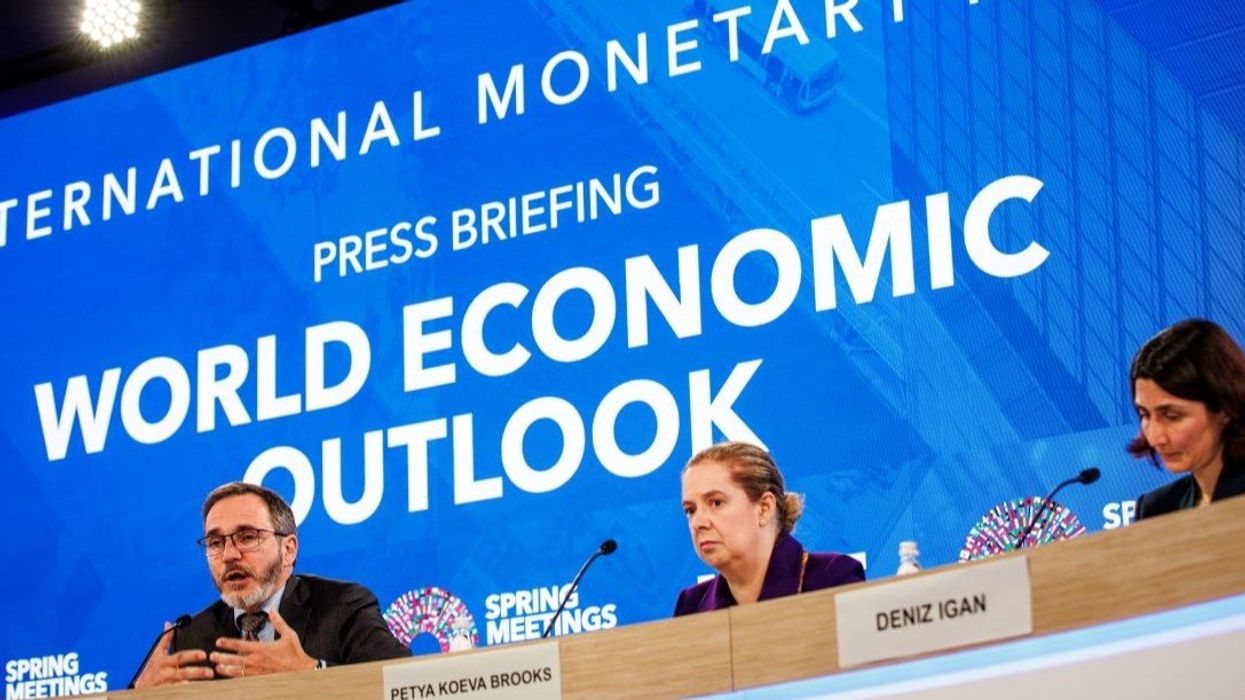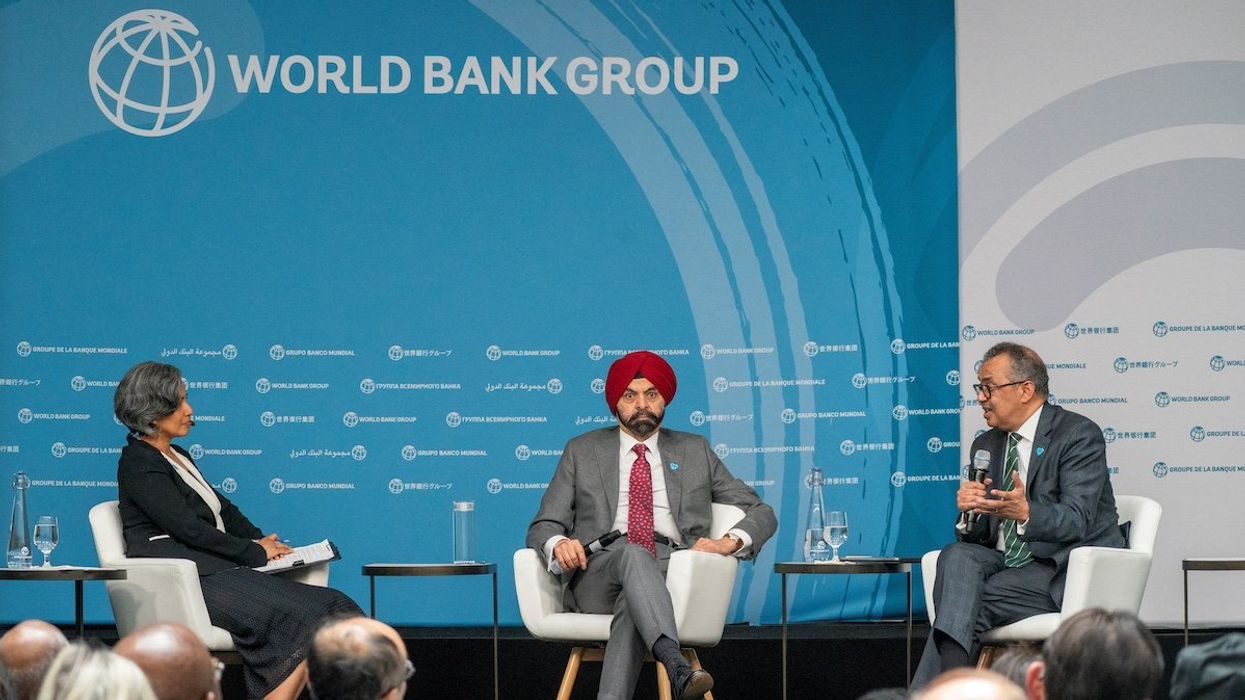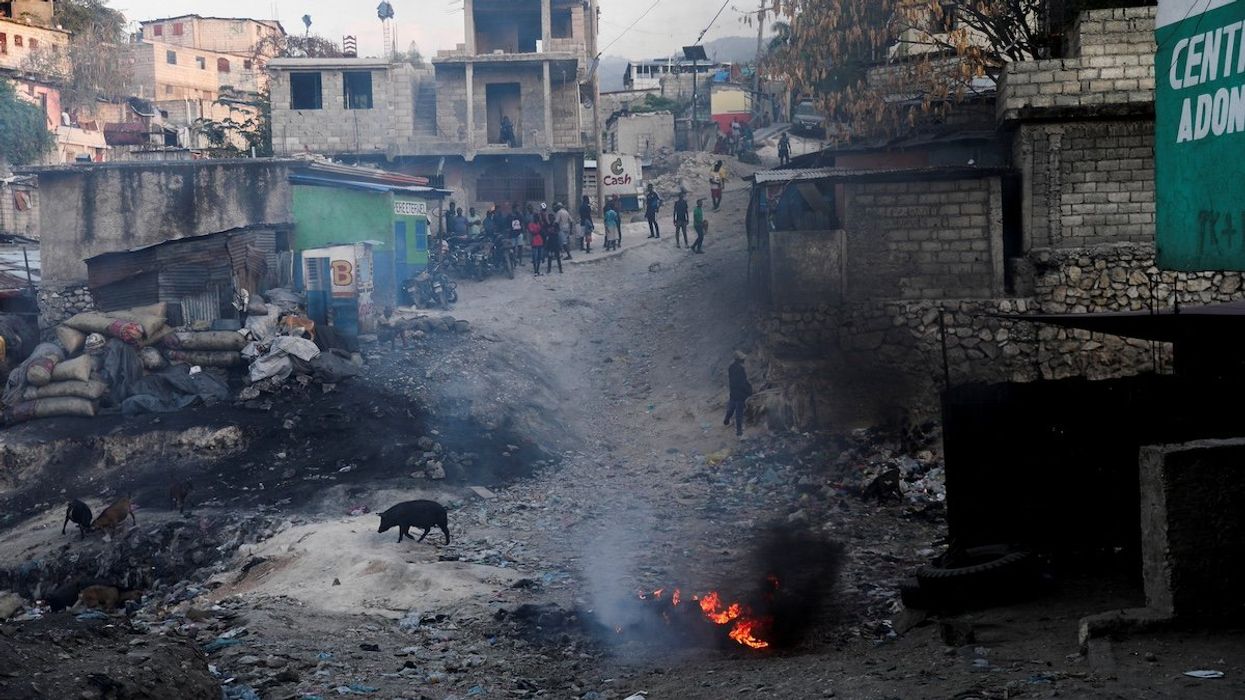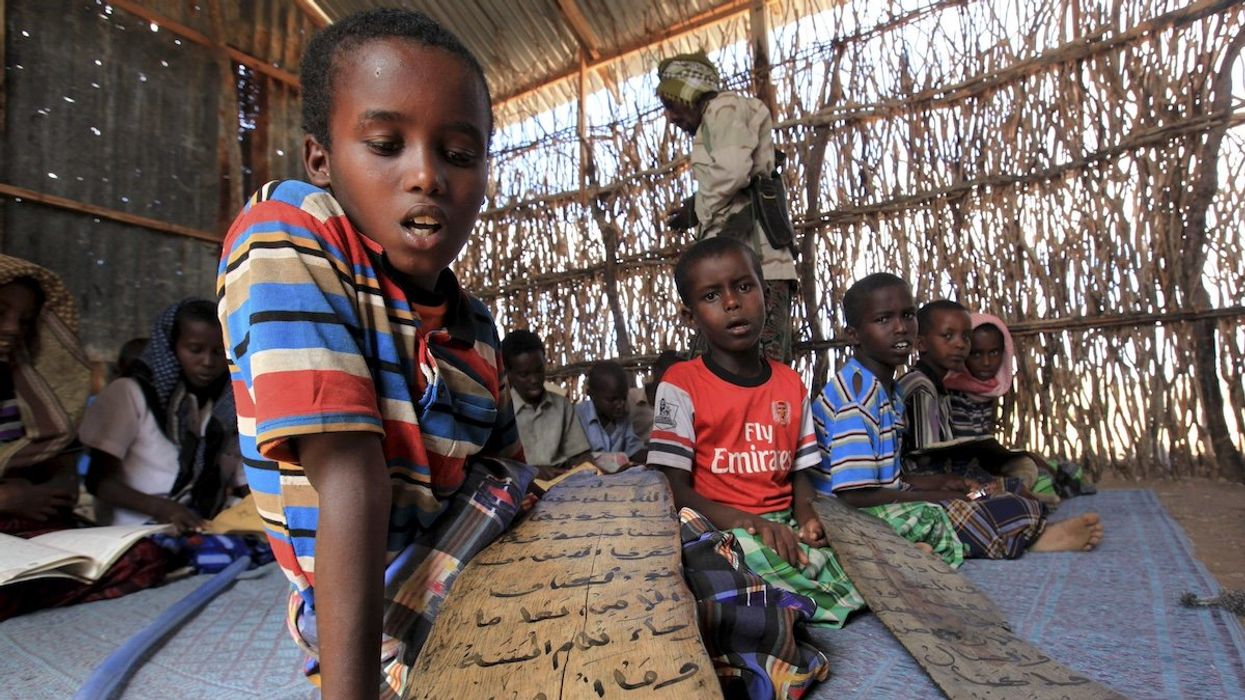What We're Watching
IMF downgrades growth outlook
“Just since January, we’ve entered into a new era,” IMF’s Chief Economist Pierre-Olivier Gourinchas told the press Tuesday at the Spring Meetings of the International Monetary Fund and World Bank.
Apr 22, 2025




